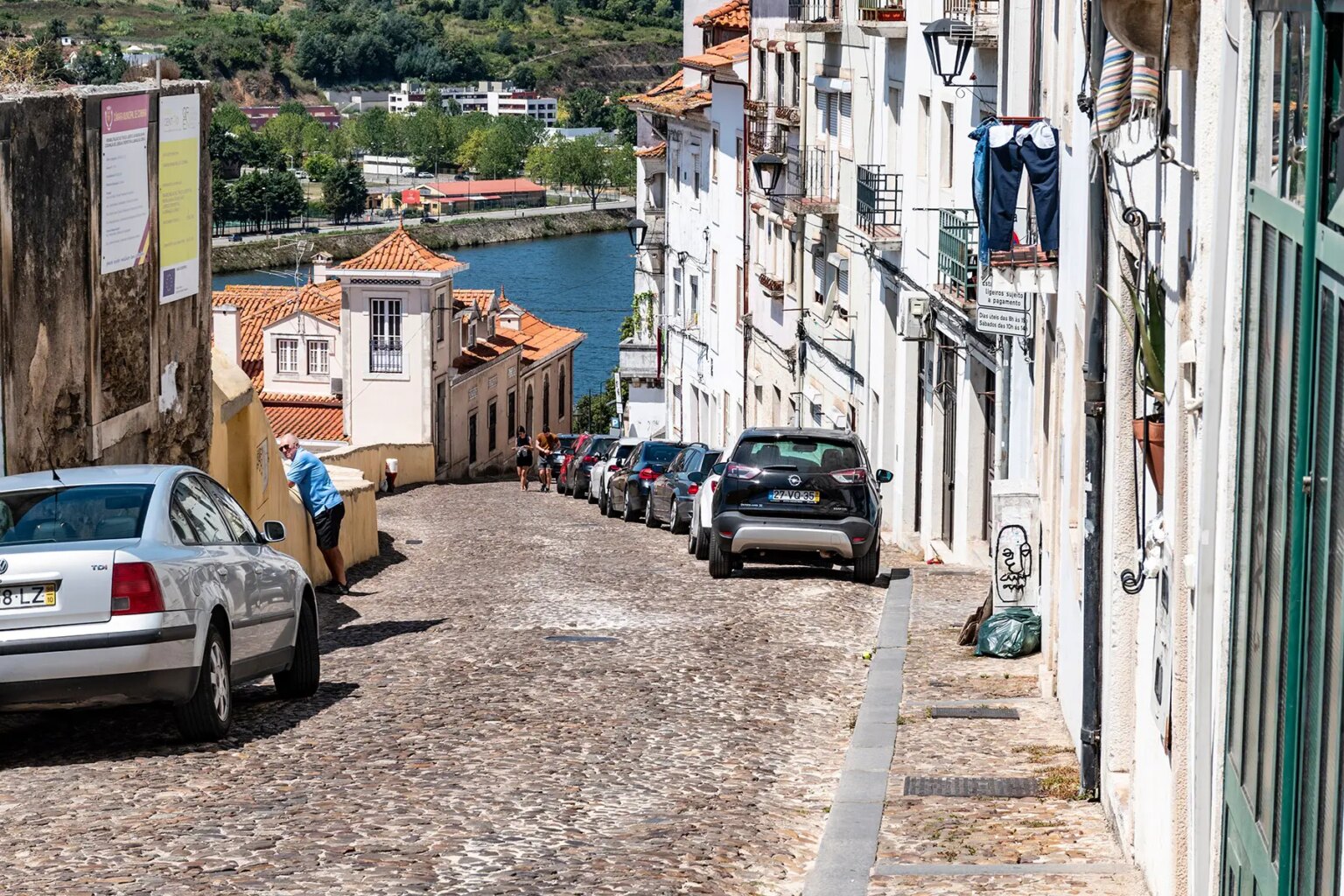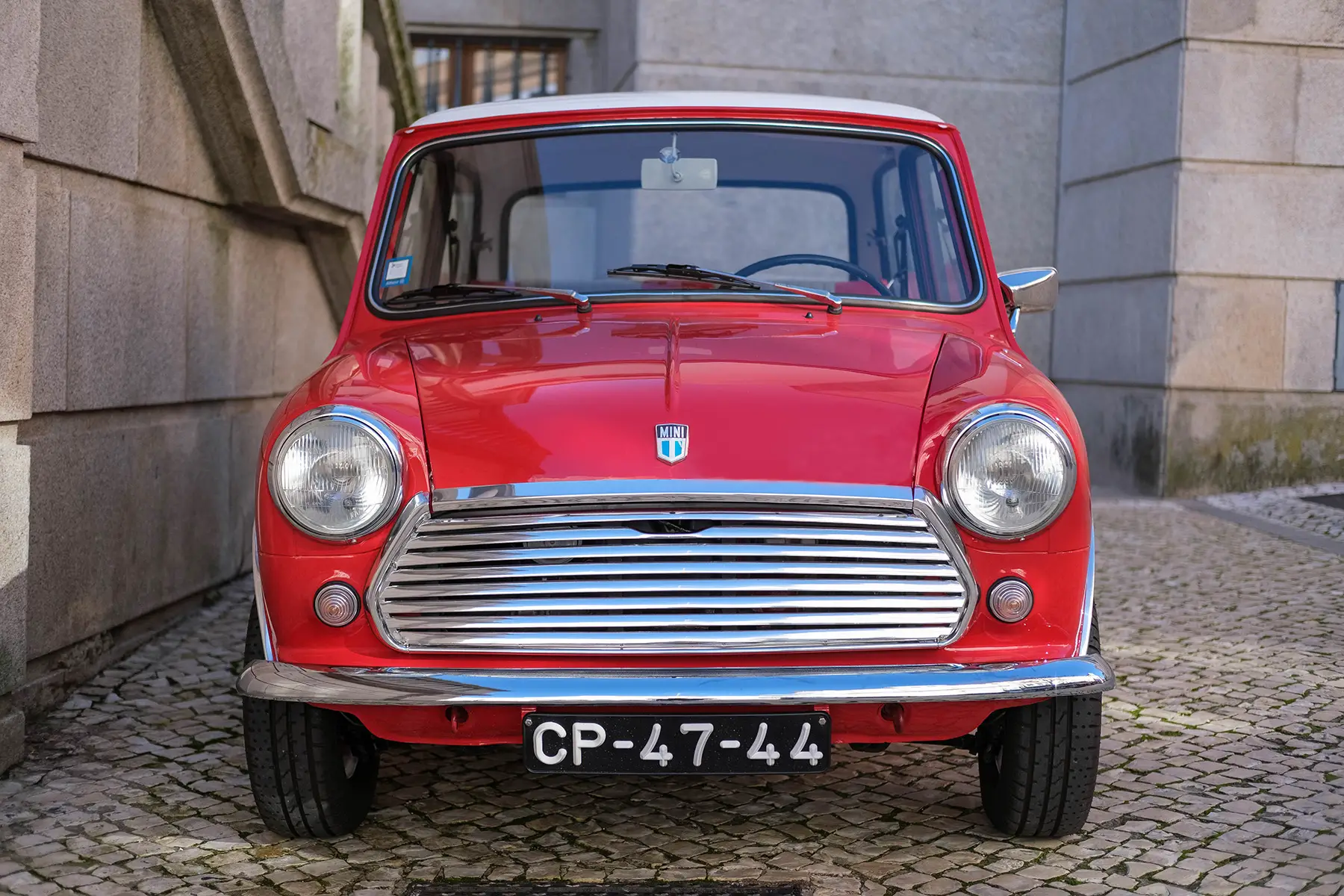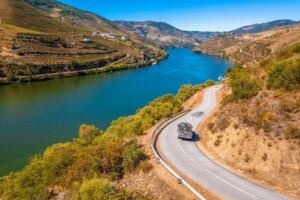Driving in Portugal can seem a little scary at first. Knowing the facts can make this transition easier for you. Of course, the first step is getting a driver’s license. Keep in mind that driving laws are strictly enforced so it is important to know these laws and follow them.
To help you get on the road, this article contains the following information:
- Driving in Portugal
- Who can drive in Portugal?
- Portuguese driving licenses
- Drivers with disabilities in Portugal
- Car registration and maintenance
- Driving costs in Portugal
- Driving rules and penalties in Portugal
- Road signs in Portugal
- Traffic information in Portugal
- Parking in Portugal
- Road accidents and breakdowns
- Cars in Portugal
- Car repair in Portugal
- Tips on driving in Portugal
- Useful resources
Driving in Portugal
According to a 2018 survey by Automóvel Club de Portugal, there is an average of 1.89 vehicles per household in Portugal. This equates to around 459 vehicles for every 1,000 people. The Instituto da Mobilidade e dos Transportes (IMT, I.P.) is the government agency concerned with transportation. Roads in urban areas are generally well maintained. However, roads in the countryside are not so keep this in mind if you decide to venture out to the rural areas.

In an attempt to reduce emissions, Portugal has low emission zones throughout the country. This means that certain areas are restricted to specific (environmentally friendly) vehicles only. In addition, there is a higher registration tax for vehicles with higher CO2 emissions. Hybrid cars receive a discount on the registration tax and electric vehicles are exempt from this tax. Electric cars are also exempt from paying parking charges in several areas throughout the country. This is all in an attempt to keep vehicles emissions in Portugal low.
Drivers drive on the right side of the road. Be aware that Portuguese drivers tend to be a little faster and sometimes more aggressive than you might be used to. This is despite police being fairly strict when enforcing driving laws. One thing to note is that drivers in Portugal do not use turn signals frequently, so it is important for you to stay alert.
Who can drive in Portugal?
In Portugal, you must be 18 years of age, with no physical or mental impairments to obtain a driver’s license. In order to drive in Portugal with a non-EU country license, you will need an international driving permit (IDP). Residents of the United States may use their US license in Portugal for up to 185 days. If your driver’s license is issued by a country within the European Union then an IDP is not needed.
If you are from a country other than the United States or the European Union, you should obtain an IDP before you relocate. In order to do this, you will need your current driver’s license, a completed application, and the application fee. Applications can be completed online or by mail. You can view more details on getting a driver’s license in Portugal here.
Please note that while driving in Portugal, you are required to have a number of items in your car. This includes a yellow, orange, or red reflective danger vest, one red reflective warning triangle, a spare wheel, and the tools necessary to change it inside of the vehicle. Your car must also be clean. All of these may be checked during inspection if you are stopped by the police. According to driving laws, it is a legal requirement to have these items.
Portuguese driving licenses
In order to obtain a new driver’s license in Portugal, you must attend driving classes and pay a fee. For first-time driver’s license holders, you will have to pass both a practical and theory driving test. While driver’s licenses are given to you at the driving school you attend, the body that oversees the service is the Instituto da Mobilidade e dos Transportes, I.P. (the Institute of Mobility and Transport or also known as the IMT, I.P.).
In 2021, a new type of driver’s license was created to enhance security which includes a multiple laser image. Each driver’s license contains the full name of the holder, date, and place of birth, date issued and date of expiration, name of the issuing authority, license number, photograph and signature of the holder, permanent place of residence, category of vehicle the holder is allowed to drive, and any additional information or restrictions.
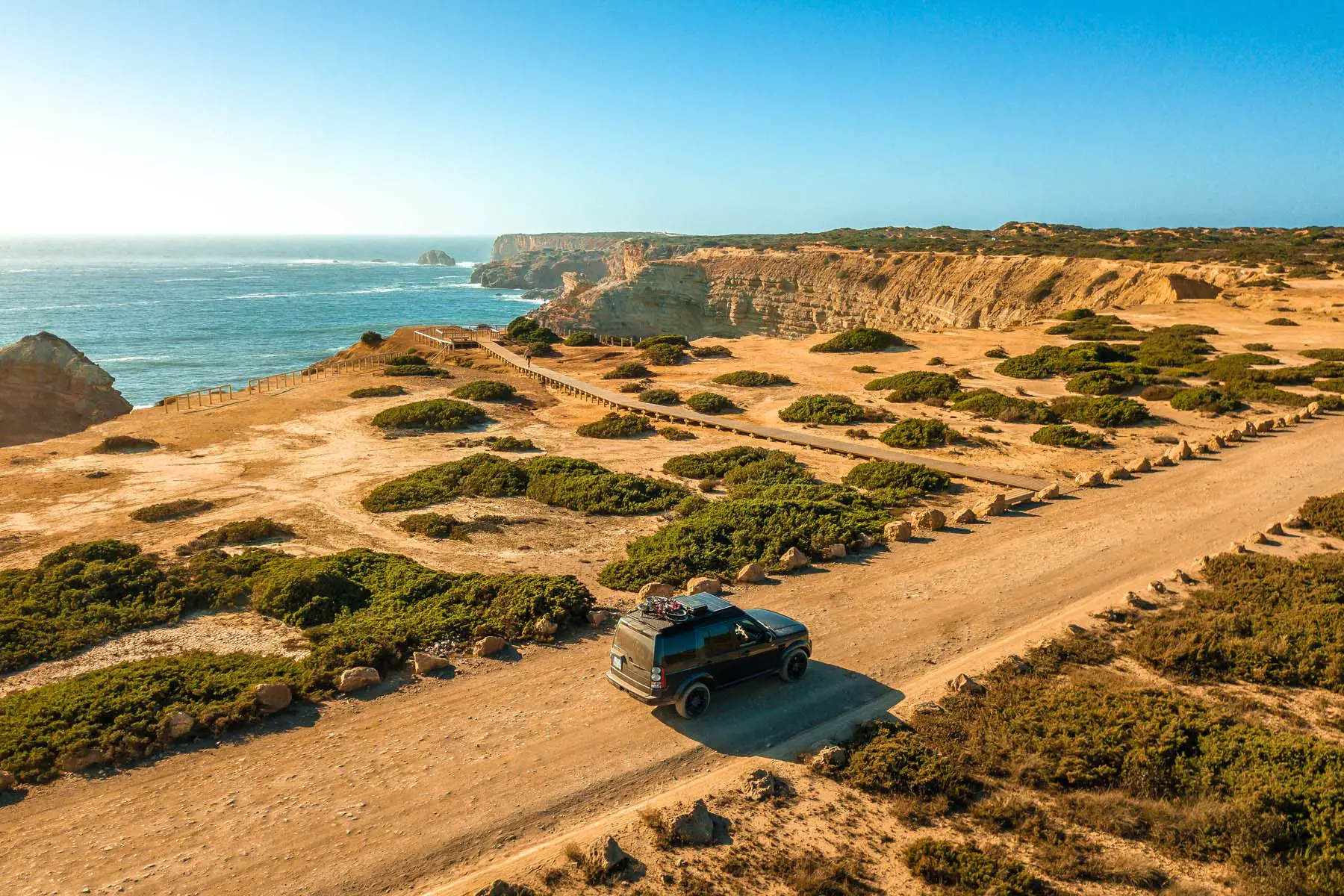
Getting a driving license in Portugal
Portugal’s online citizen portal lists the requirements needed to obtain a driver’s license in Portugal. In order to get a driver’s license in Portugal you must be over the age of 18, have lived in Portugal for at least 185 days, and not be prohibited to drive by any authority. You also cannot hold a driver’s license in another European Union country, and you must meet the physical, mental, and psychological requirements. Your driver’s license will state what category of vehicles you are licensed to drive (for example, passenger cars, light-duty vehicles, or trailer trucks).
Exchanging a foreign driving license in Portugal
The process to exchange a driver’s license from a foreign country is simple. You must submit an application and pay a fee of 30 Euros. Depending on the country of origin of your foreign license, you may or may not have to take a practical driving test. Receiving the new license is not immediate, so you will be given a temporary permit to continue driving. Find out more with our look at exchanging a foreign driving license in Portugal.
Drivers with disabilities in Portugal
Drivers with disabilities are exempt from ISV Tax. In addition, drivers are entitled to designated parking spaces in towns and cities across the country. Visit the ePortugal site for details on how to apply for a disabled person’s parking card. In addition, this parking pass allows drivers with disabilities to park in places where parking would normally not be allowed. This should only be done if it is necessary and can only be done for short periods of time as long as the car is not interrupting the flow of traffic.
Vehicle adaptions for either drivers or passengers can be made with the following businesses:
Car registration and maintenance
If you are bringing your car to Portugal from another country, you will have 60 days to register the vehicle. New and used vehicles purchased in Portugal also require vehicle registration before 60 days. You can register your car online here.
License plates in Portugal use an alphanumeric system such as, “00-AA-00.” Mandatory vehicle inspection tests include the IPO (Inspecção Périodica Obrigatória) which is the roadworthiness test. There is also a required CO2 emissions test.
Inspections must occur every two years until the car reaches the seven-year age mark. After the car is eight years old, it must be tested annually. Inspection tests are carried out at local authorized test sites called Pesquisa Centros Inspeção. You may find test site locations on the IMT I.P. website.
If your car fails the inspection, you will be given a “Red Form” which explains why your car failed. You will then have 30 days to fix the listed issues and have the car re-inspected at the same testing location.
Driving costs in Portugal
Maintenance and taxes
As mentioned previously, all vehicles are subject to inspection periodically. The exact period of time between inspections and the cost will be determined by the kind of car you have. Here is a useful table with types of inspections for cars in Portugal. Costs range from €8 to €48 depending on the type of vehicle and whether it is a first-time inspection or a re-inspection. Note that re-inspections are €7.97.
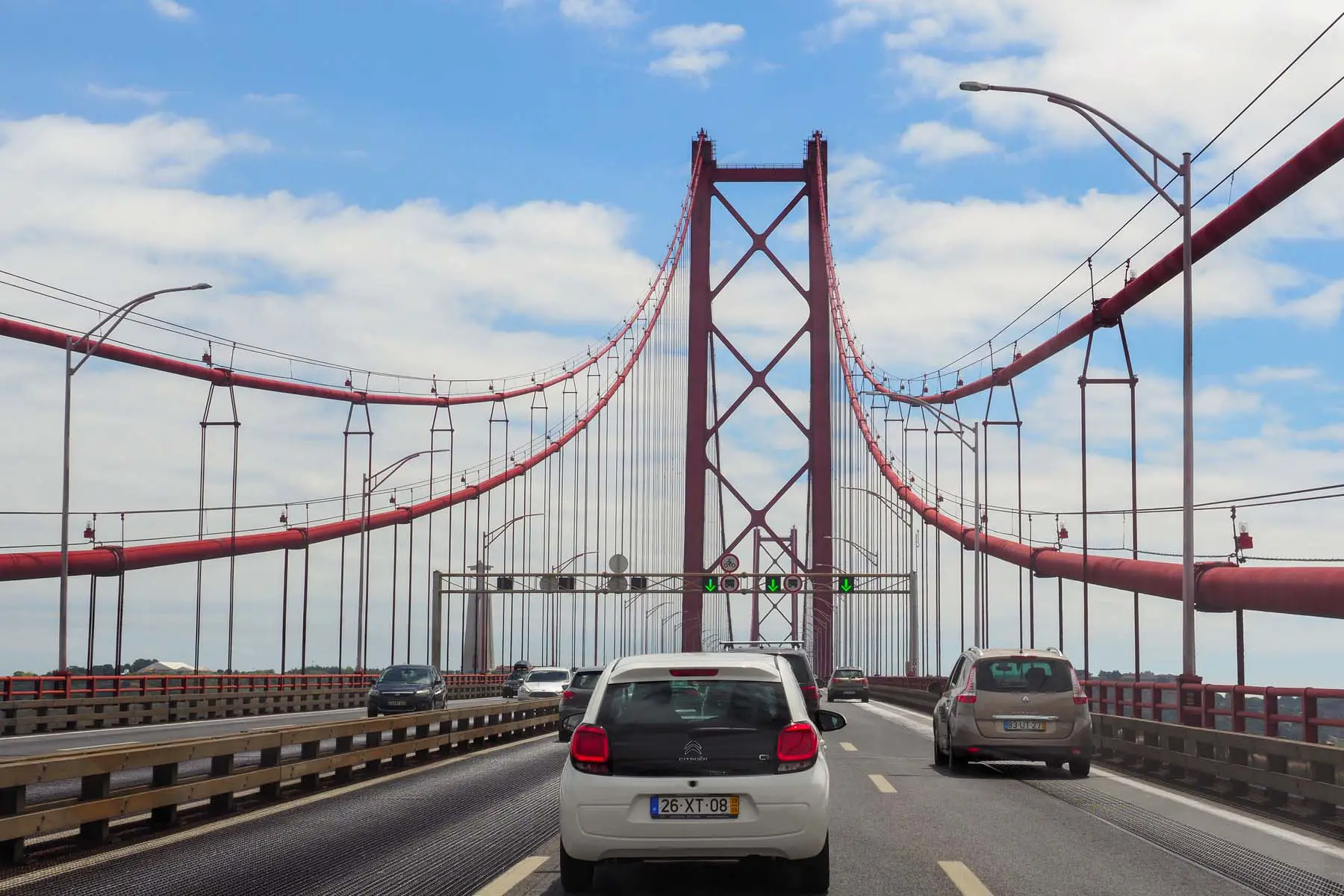
All vehicles pay two taxes: the Imposto Sobre Veículos (ISV) and the Imposto Único de Circulação (IUC). The ISV is a one-time tax paid when the vehicle is first registered. The tax is calculated based on CO2 emissions so it will vary depending on the vehicle. Hybrid cars have a discount on the ISV, and electric cars do not pay an ISV. The IUC tax is paid annually. However, there are some people who are exempt from paying car taxes. Exemptions include:
- Vehicles whose owners have changed their residence to Portugal from another EU country or from a non-EU country
- EU officials and agents
- Vehicles acquired by the military, security forces, or local police
- People with disabilities
As noted, if you are bringing your car with you from another country, you can apply for an exemption from ISV tax.
Car insurance
Car insurance is legally required in Portugal. Not having insurance is a serious offense and comes with hefty fines. If you get in an accident and do not have insurance, you will be required to pay for the damages of both parties out of pocket. Prices of insurance will vary depending on the driver’s age, license seniority, the type of car, and the kind of coverage you want. For more detailed information, check out our guide on car insurance in Portugal.
Tolls and fuel
There are various toll roads in Portugal that may be paid using cash, credit card, or by automatic electronic payment through the EasyToll system (using your car’s license plate). In addition, you can pay with a Via Verde (an electronic green lane pass), a prepaid Toll Card, or an unlimited 3-day Toll Service card. You can use a toll road calculator to help plan your route.
Furthermore, if you have a petrol or diesel-powered car, you’ll also need to fill your car with gas. Be sure to check the up-to-date information on gas prices in Portugal. If you’re using an electric vehicle, research your nearest charging points in Portugal.
Driving rules and penalties in Portugal
General road rules in Portugal
Here are a few important driving rules to ensure your safety:
- Drive on the right side of the road. Overtaking must be done on the left. If caught overtaking on the right side you will be subject to a fine.
- Always wear a seatbelt. All passengers must also wear a seatbelt.
- Minors under 12 years old cannot ride in the front passenger seat.
- Safety camera radars or warning devices are illegal.
- You must have a copy of your driver’s license, your IDP if it applies to you, proof that you own the vehicle (such as the registration certificate), and proof of insurance. If you’re driving someone else’s car, you should have written confirmation from the owner that you’re allowed to drive the vehicle. Alternatively, if you have a car rental, you should have a copy of the rental agreement.
- You must have a reflective vest, an emergency warning triangle, and a spare wheel along with tools to change a wheel. It is required by law to have all these items inside the car.
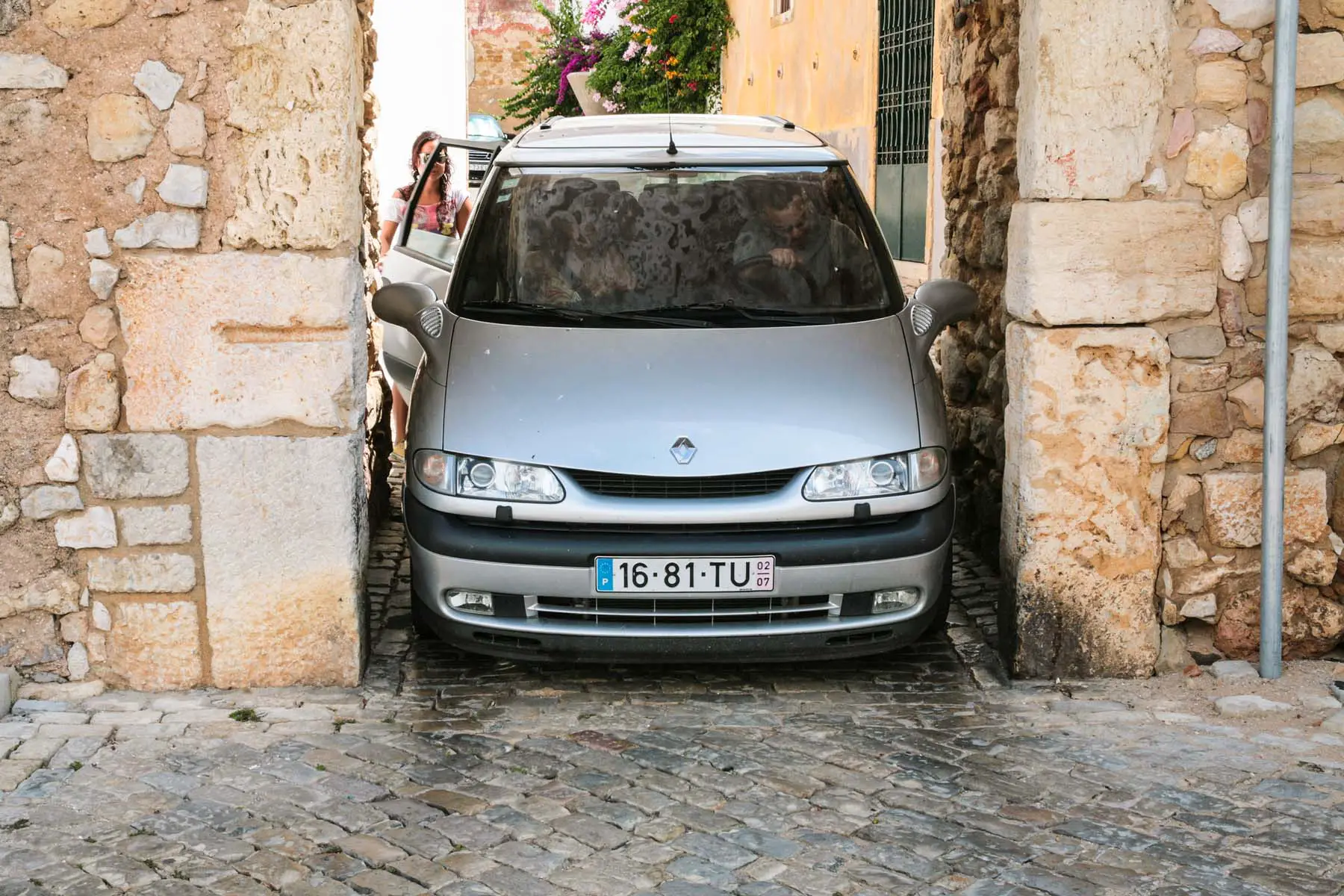
Keep in mind that this list is not exhaustive.
The speed limit in Portugal
Penalties for speeding depend on how fast you were going over the speed limit and the area you were speeding in. Fines can range anywhere from €60 to €2,500, or even having your license suspended for up to two years.
To reduce speeding in Portugal there are numerous speed cameras, speed traps performed by police, and hefty fines for speeding. Here are the general speed limits:
- Built-up urban areas: 50km/h
- Rural roads: 90km/h
- Expressways: 100km/h
- Motorways: 120km/h
However, you should always adhere to local speed limits and drive according to conditions.
Driving under the influence in Portugal
Drunk driving is strictly prohibited in Portugal. The alcohol limit is 0.5 grams per liter of blood (or .05%). This falls to .02% for professional drivers like truck drivers or delivery drivers. If you are caught with a Blood Alcohol Content greater than .05% you can be fined anywhere between €250 to €1250. In some cases, you may also receive points on your license.
Similarly, driving under the influence of any sort of drug is also illegal and subject to fines.
Distracted driving laws in Portugal
Using a handheld device while driving in Portugal is prohibited. A hands-free system is permitted. The fine for distracted driving is up to €600.
Driving without a license in Portugal
Driving without a valid license is punishable by a fine. The amount will depend on the circumstances.
If you have a driver’s license but do not have it on your person and you are stopped while driving, you will receive a fine between €60 and €300. If you have a different form of ID with you, the police officer may be able to check in their system that you do indeed hold a driver’s license and may be more lenient with the fine.
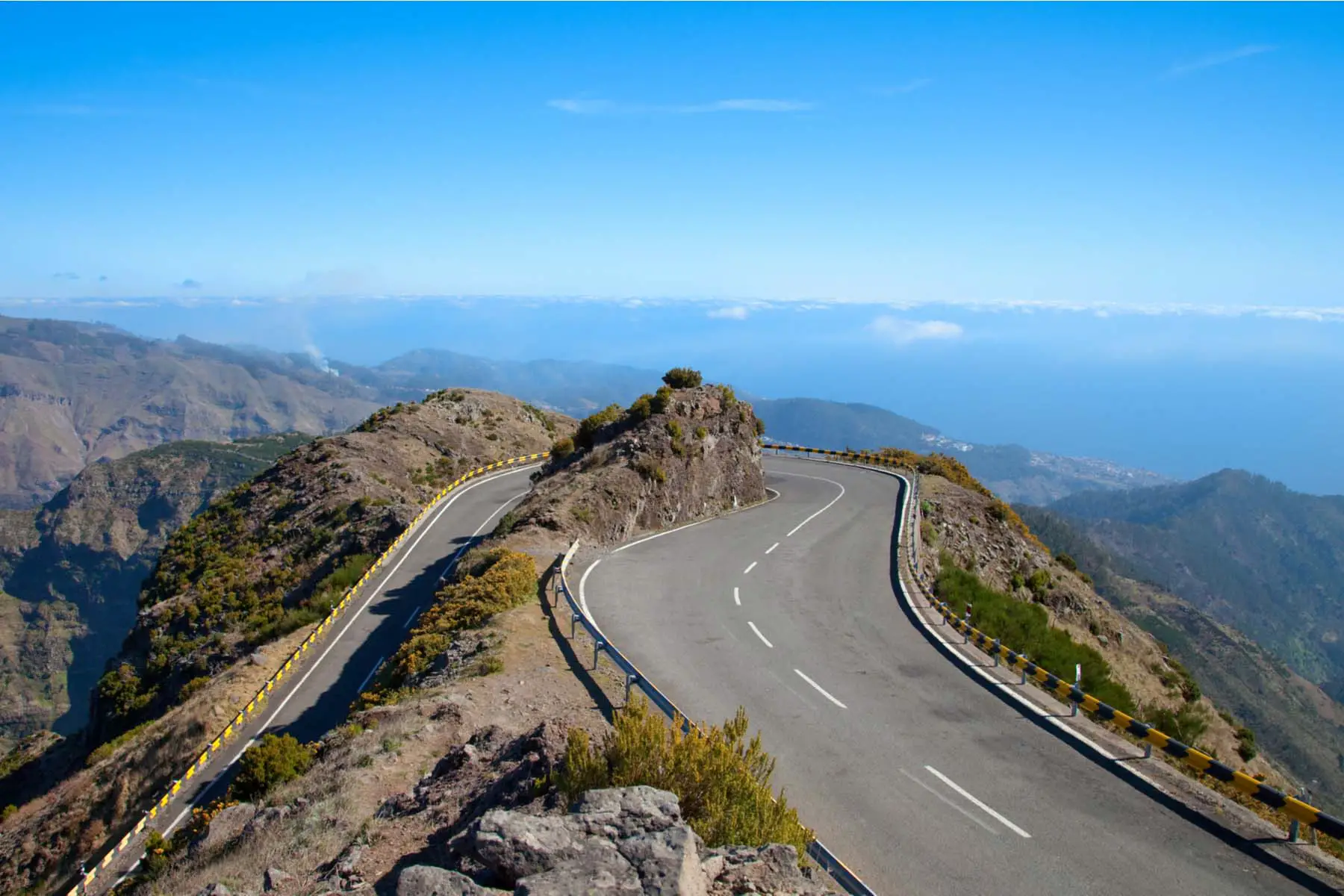
In the case that you have a driver’s license, but your license does not apply to the category of the vehicle you are stopped in (for example, if you are licensed to drive a passenger car but are caught driving a forest tractor) you are also subject to a fine. You can be fined anywhere between €500 and €2,500.
If you are caught driving with a suspended, revoked or no license at all, you may be subject to a fine or even imprisonment of up to two years. Remember that repeated offenses will result in higher fines.
Road signs in Portugal
Traffic signs in Portugal include informative signs, mandatory signs, warning signs, priority signs, and prohibitory signs. It is important to review these road signs before driving as they vary from those in other countries. Signs with writing on them will be written in Portuguese.
Traffic information in Portugal
Portugal has heavy traffic at times. Things that may cause traffic include accidents, potholes, and construction. Generally speaking, the largest cities like Porto and Lisbon are most likely to have the heaviest traffic. TomTom offers useful statistics on traffic patterns by city. It may be useful to check traffic conditions before heading out. You can also check current traffic updates and alerts here.
Parking in Portugal
Communal parking may be found on city streets or underground. Most street parking spaces are metered. You must pay for metered parking or you will receive a ticket. Once a ticket is issued, your car will be clamped. You have two hours to call and pay your ticket or your car will be towed, also resulting in a higher fine.
If you choose to park underground, you will be required to get a parking ticket. These tickets are available upon entering the underground parking garage through the payment machine. Note that electric vehicles are exempt from paying parking charges in several areas throughout Portugal.
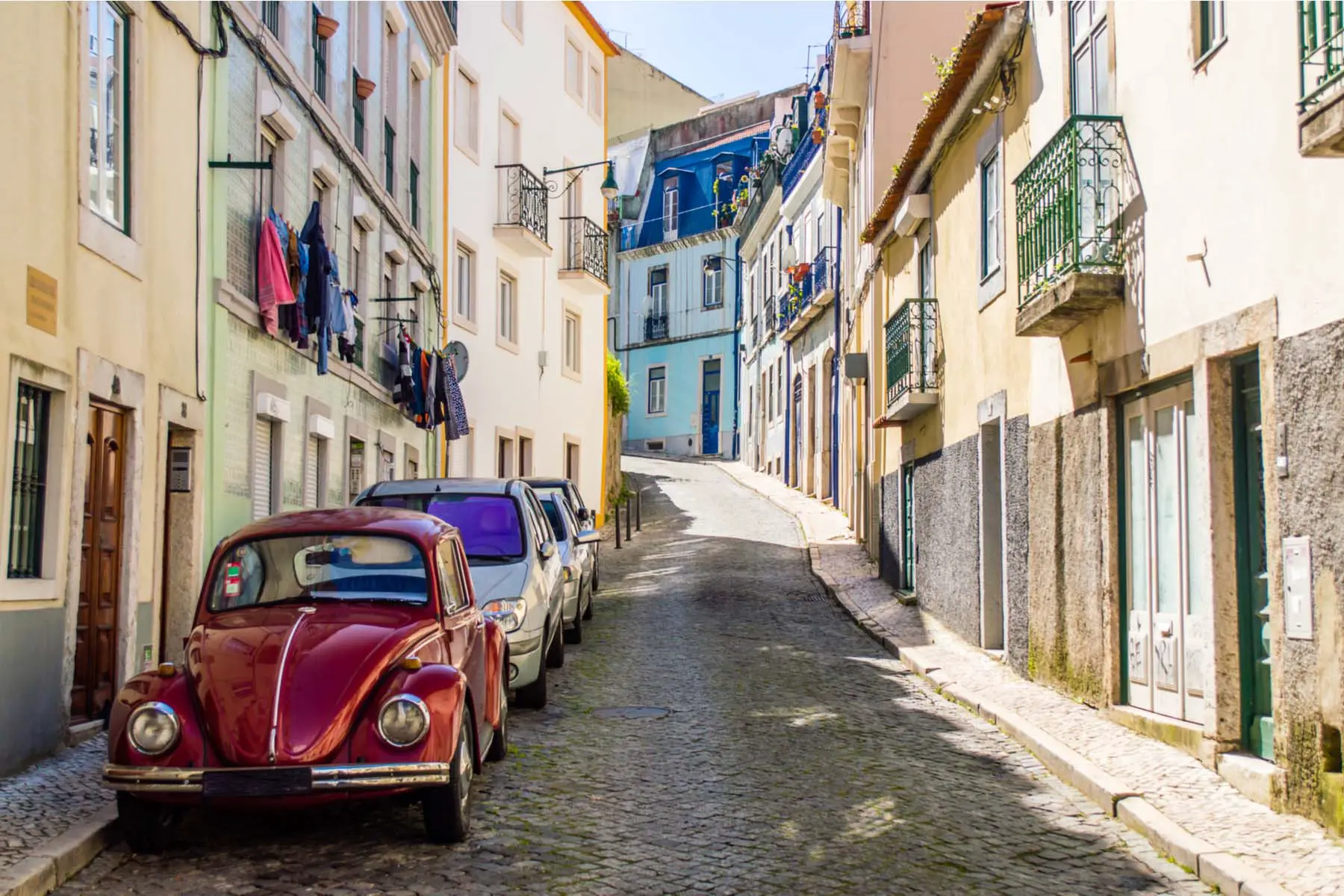
If you are purchasing a parking sticker for residential areas, the first sticker is usually free. The second and third sticker costs an average of €54 to €132. Residents who wish to park in residential areas must apply for a parking sticker. The cost of the sticker will vary by city.
If you live with a disability, you can apply for a parking pass for disabled individuals that allows you to park in designated spaces.
Of course, there are “no parking zones.” A white and blue sign with a red line across means this is a no-parking zone. Yellow or red signs painted on the curb are also no parking zones. Fines for parking in these zones may go up to €300.
Road accidents and breakdowns
Road accidents in Portugal
In 2019, there were 621 fatalities due to road accidents. This was a decrease from 2007, which had 974. ANSR provides accident reports from each year starting in 1999. However, please note that the reports available for download are in Portuguese.
If your car is involved in an accident, call 112 if necessary. Remember to put your safety vest on when getting out of the car. If there is an injury, you are required by law to wait at the scene. You must exchange your driver’s license and insurance information with the other driver. If you don’t have these items in your possession, you will be fined. After contacting emergency services you should then contact your insurance company and make a report of the accident.
It’s also a good idea to take pictures of the scene and any damages. If there is a dispute among the drivers, you will have to call the police. Each driver will provide their own version of what happened to the police and to both parties’ insurance companies. If the other driver does not have insurance, write down the car’s registration number. Give the registration number to the police and your insurance company when making an insurance claim.
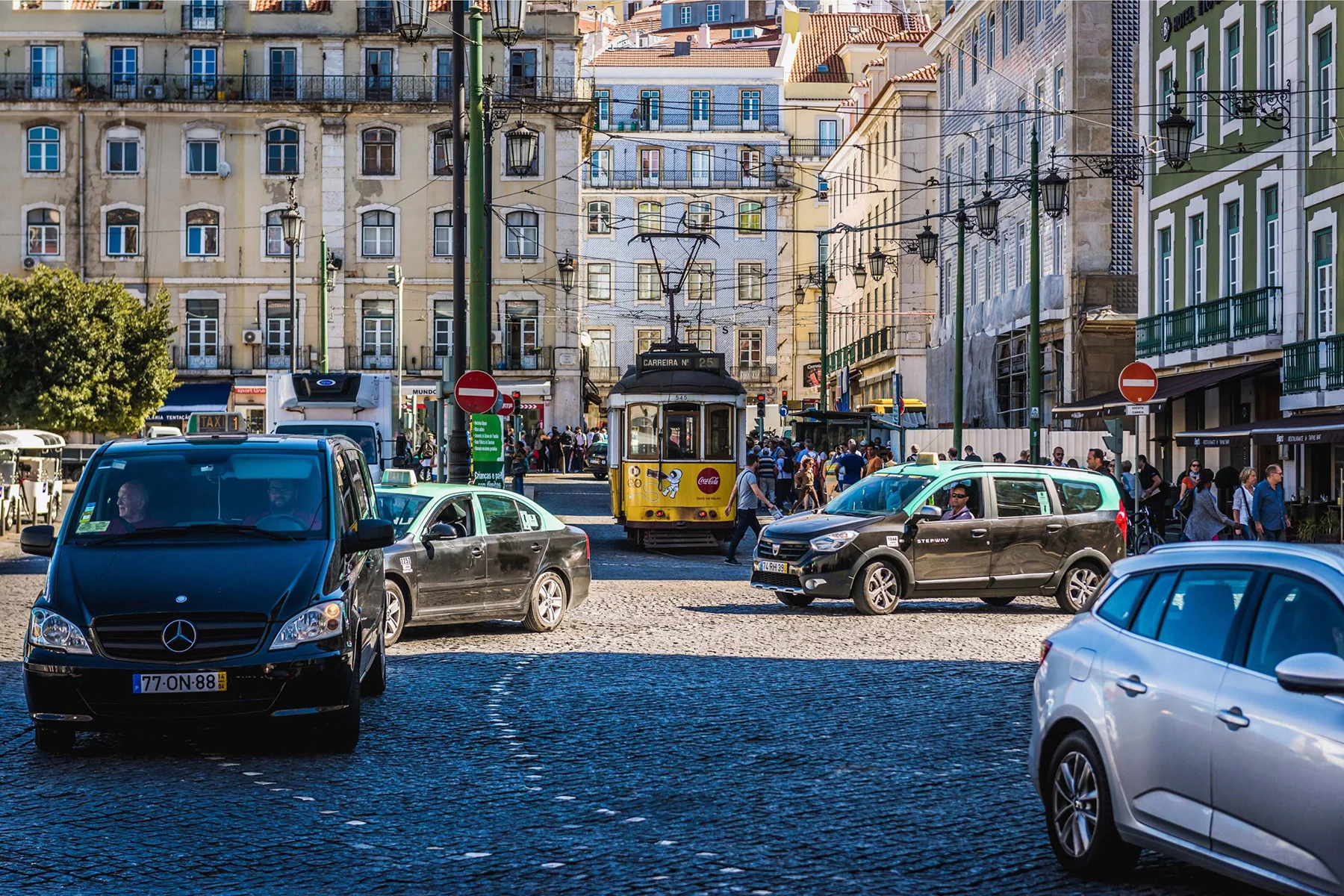
If you are at fault, it is a good idea to hire a lawyer before pleading guilty if a police officer gives you a ticket. This is because a guilty plea will affect your driving record, and too many violations can result in suspension or loss of a driver’s license. If you are found guilty, consequences can range from being responsible for paying damages to the other party, or paying a fine if it is a criminal offense (for example, if you were driving under the influence of alcohol).
Vehicle breakdowns in Portugal
If your car breaks down in Portugal it is important to move your vehicle out of traffic. Make sure your vehicle is in a safe place that will not cause any accidents or harm to you. You may need to pull over to the shoulder if you are on a highway. However, if you are close to a highway exit and the car is safely able to drive, you should stop the vehicle off the roadway instead. It is important that you make yourself visible. Do not leave your car without putting on the emergency lights and your emergency vest. You now need to get your emergency triangle and place it 50 meters behind your car so that it is visible to other cars driving by.
In the event of an emergency or physical accident, call 112 immediately. In Portugal, 24-hour roadside assistance is usually included with your insurance. Pull out your insurance card, locate your policy number, and call your insurance company.
Cars in Portugal
Buying a car in Portugal
In order to buy a car in Portugal, you will need:
- proof of Portuguese residency
- a tax number
- proof of identity
If you would like to purchase a new car, you will need to go directly to the dealer themselves. For example, if you want to purchase a brand new Toyota, then you will go directly to the Toyota dealer. When buying a used car, you also have the option to go to the dealership. However, with prices being so high for cars in Portugal, people prefer to buy used cars from private parties. Used cars can be found online at Guia Automóvel, Turbo, or Auto. If you choose to purchase a used car from a person, be aware of scams and make sure to accurately check the documento único automóvel booklet and the registration.
Importing a car in Portugal
If you are interested in importing your car to Portugal you will need to provide:
- a certificate of conformity
- a transaction declaration
- an IMT form model 9
- the transportation guide from the transportation company (this only applies if you hired a transportation company to bring the car over rather than driving the car yourself)
- the customs declaration of vehicles
You will need to pay a fee to customs, however, you may not have to pay taxes on the car since expats and ex-emigrants of Portugal are exempt from paying the ISV tax and VAT. Don’t forget to get your vehicle inspected as soon as possible and change your license plates.
Hiring a car in Portugal
In Portugal hiring a car is the same as saying renting a car in other countries. You must be at least 21 years old with a valid driver’s license to hire a car. You must have held a license for at least a year, whether in Portugal or your home country. Keep in mind that some companies charge a Young Driver Fee if you are under 25 years old. You can compare rental company costs on websites such as Rentalcars or Discovercars. You can hire a car in just about all the major cities, as well as airports. The cost of renting a car will depend on how far in advance you book and the time of year. Check out tips for avoiding extra charges when renting a car in Portugal.
Selling a car in Portugal
Selling your car in Portugal means you are responsible for transferring the ownership. To do this, complete the Transferência de Propriedade or Contrato verbal de compra e venda. This is a document that has the car information, your information, and the new owner’s information. Both you and the new owner will sign this document. This must be done within 60 days of selling the vehicle.
You can list your car for sale on the websites mentioned earlier: Guia Automóvel, Turbo. or Auto.
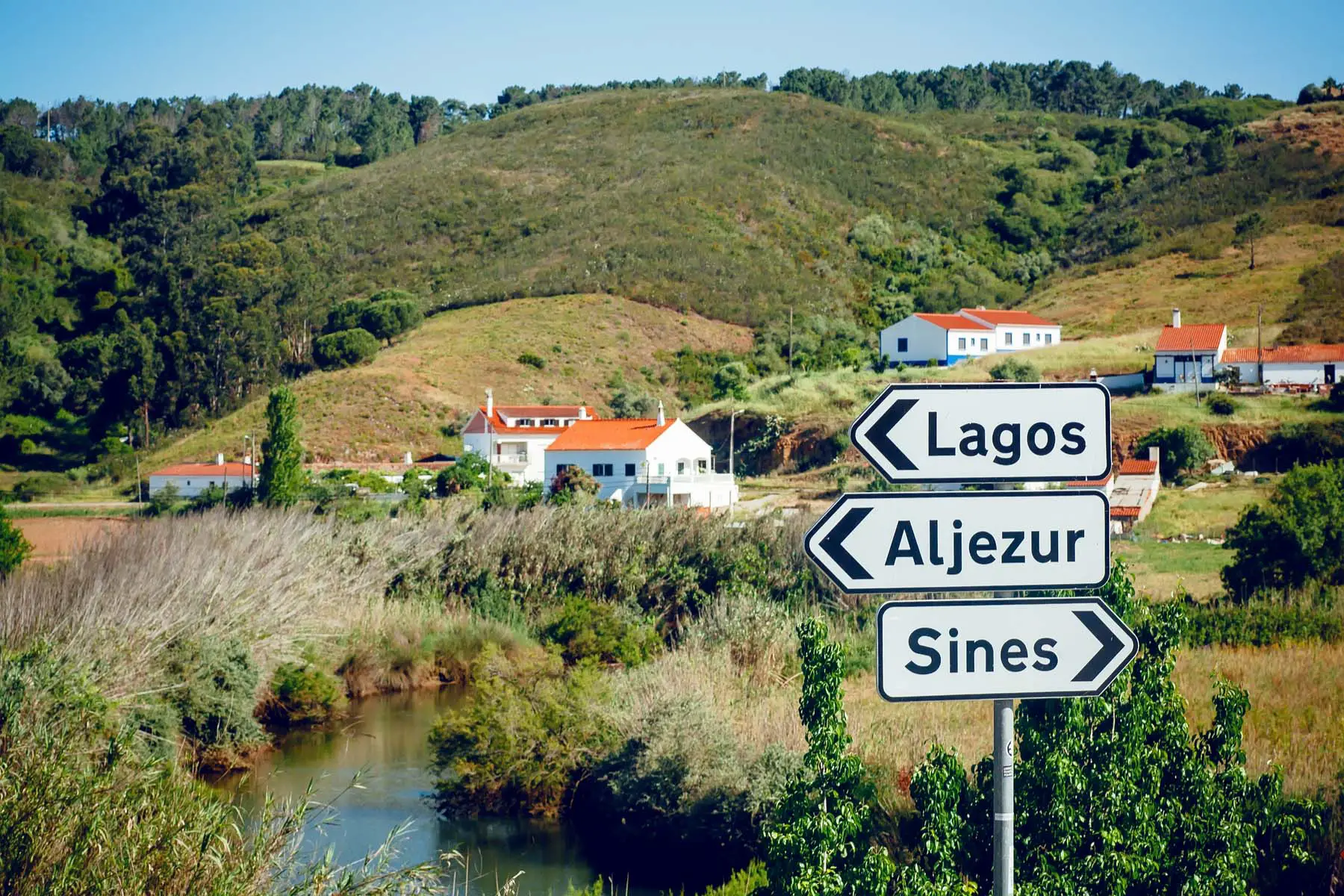
Carpooling/car sharing in Portugal
Carpooling is gaining popularity among drivers in Portugal. You can use the following platforms to find groups to carpool with:
You can even carpool from Portugal to a different country in Europe using Europe Carpooling.
Car repair in Portugal
If your car needs to have maintenance or repairs done, rest assured that there are plenty of auto garages you can take your car to. Services range from regular maintenance such as oil changes to body repair, to mechanical failures. Find a repair shop near you:
- Kompass Directory offers a list of repair shops in Portugal.
- Porto do Auto Movel allows you to filter through repair shops by area, the type of car, and the type of service needed.
Tips on driving in Portugal
- Be a cautious driver since drivers in Portugal are sometimes aggressive
- Give the right of way to drivers who flash their headlights (contrary to what is done in some countries where flashing your headlights means you are giving someone else the right of way, in Portugal, it means you are requesting the right of way).
- Do not throw your trash out of the window since this will result in a fine.
- If stopped by the police, you will be better off if you admit to the offense if you’ve violated a law. Police officers are more likely to be more lenient if you are honest.
- Remember that any repeated offenses, even minor offenses, can result in license suspension or license revocation.
Useful resources
- Instituto da Mobilidade e dos Transportes – The official government website for the Institute of Mobility and Transport (IMT, I.P.)
- ePortugal – A government website that provides information on services, applications, and public administration agencies all in one place
- International Drivers Association – Information on exchanging your foreign driver’s license
- Portugal Tolls – Information on Portugal’s tolls
- Toll Calculator – Use this website to calculate the total cost of the tolls of your trip before heading out
